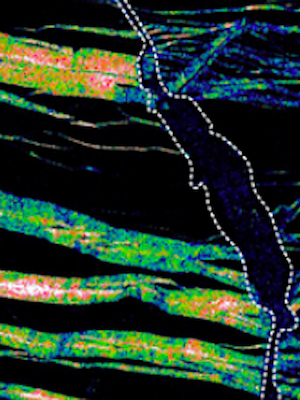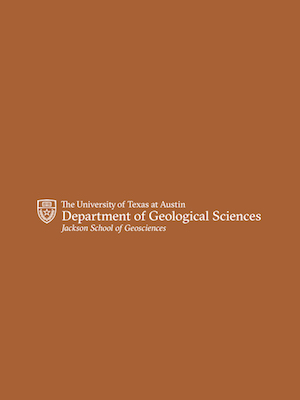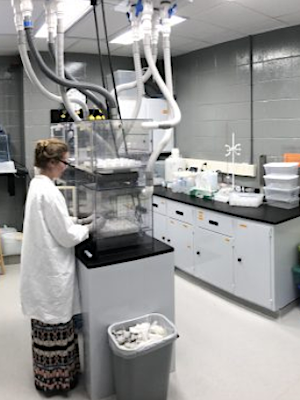Stable Isotopes

High Temperature Stable Isotopes
Light Isotope Laboratory houses a ThermoElectron MAT 253 to measure stable H, C, N, O, S, and Cl isotope ratios of silicate, phosphate, and carbonate minerals, volcanic gases, and water, and study of the gas chemistry of the critical zone (CO2 in caves, soils and vegetative canopies).
High temperature stable isotope ratios can estimate temperatures of mineral equilibration and to identify sources of metamorphic fluids.
- Contact Jaime Barnes for details.

Carbonate & Critical Zone Isotopes
Critical zone–between the water table and the top of the tree canopy–gas analysis relies on a series of capabilities developed to measure isotopic compositions and concentrations of gases using very small sample sizes. This capability is also housed in the Light Isotope Laboratory (above) using a ThermoElectron MAT 253.
- Contact Dan Breecker for details.

Paleoclimate & Paleoenvironmental Analysis
Available for commercial analysis, the Analytical Laboratory for Paleoclimate Studies (ALPS) is equipped with a Thermo 253 and two Delta V stable isotope ratio mass spectrometers. Capabilities include stable carbon and oxygen isotope analysis of carbonates (with Kiel IV device) and waters, stable carbon and nitrogen isotope analysis of organic matter (with a Costech elemental analyzer) and compound specific carbon and hydrogen isotope analysis by gas chromatography combustion/pyrolysis mass spectrometry. The laboratory also contains (1) HPLC-single quadrupole mass spectrometer equipped with both florescence and diode array detectors and mass-base fraction collection capabilities, (2) gas chromatograph flame ionization detector and a gas chromatograph mass spectrometer, and (3) ICP-AES for Mg/Ca and Sr/Ca analysis of carbonates.
- Contact Tim Shanahan for details.

Clean Rooms
The dedicated TIMS/MC-ICP-MS clean labs are also set up for non-traditional stable isotopes. The lab currently runs Li and will soon run Ca.
- Contact Staci Loewy or Aaron Satkoski for details.